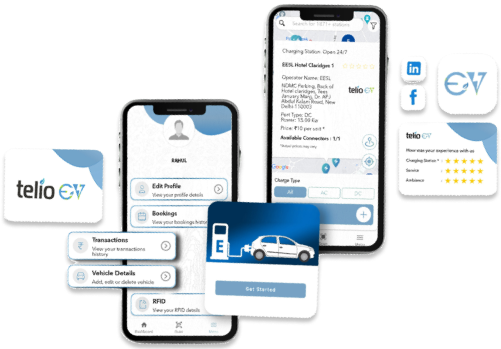Essential Things You Must Know on Charge Management Software
Essential Things You Must Know on Charge Management Software
Blog Article
Enhancing Electric Vehicle Charging with Advanced Management Software

The fast adoption of electric vehicles (EVs) has actually demanded the advancement of effective and easy to use charging solutions. Central to this development are Electric Vehicle Charging Management Software (EV CMS) and EV Charging Apps, which enhance the charging procedure for both operators and users.
Comprehending EV Charging Management Software
EV Charging Management Software works as an extensive platform that allows Charge Point Operators (CPOs) and other stakeholders to monitor, manage, and optimize EV charging stations. Key functionalities include real-time monitoring of charging stations, user authentication, payment processing, and energy management. By incorporating these functions, the software guarantees efficient operation and enhances the user experience.
Key Features of EV Charging Management Software
1. Real-Time Monitoring and Control: Operators can manage the status of charging stations, track energy intake, and address problems quickly.
2. User Authentication and Access Control: The software manages user access, making sure that just authorized individuals can use the charging facilities.
3. Payment Processing: It assists in smooth transactions, supporting various payment approaches to deal with diverse user preferences.
4. Energy Management: By optimizing energy circulation, the software minimizes operational expenses and supports grid stability.
5. Reporting and Analytics: Comprehensive information analysis aids in notified decision-making and tactical preparation for network OCPI expansion.
The Role of EV Charging Apps
EV Charging Apps are created to provide EV owners with hassle-free access to charging facilities. These applications offer functions such as locating nearby charging stations, real-time schedule updates, navigation support, and remote tracking of charging sessions. By improving accessibility and user engagement, these apps play a vital role in promoting the adoption of electric vehicles.
Combination with Open Charge Point Interface (OCPI)
The Open Charge Point Interface (OCPI) is a standardized protocol that facilitates interoperability in between different EV charging networks. Combination with OCPI allows for smooth roaming, enabling users to gain access to multiple charging networks with a single account. This interoperability improves user convenience and expands the availability of charging infrastructure.
Advantages of Implementing Advanced Charging Solutions
- Enhanced User Experience: User-friendly interfaces and trusted services increase client fulfillment and loyalty.
- Operational Efficiency: Automation and real-time tracking reduce manual intervention, reducing functional costs.
- Scalability: Advanced software solutions support the growth of charging networks to meet growing demand.
- Revenue Generation: Flexible rates models and efficient payment processing open new profits streams for operators.
Conclusion
The combination of EV Charging Management Software and user-centric EV Charging Apps is pivotal beforehand the electric vehicle ecosystem. These technologies not just streamline operations for service providers but likewise substantially enhance the charging experience for users. As the EV market continues to grow, the adoption of such sophisticated solutions will contribute in meeting the increasing demand for effective and available charging infrastructure. Report this page